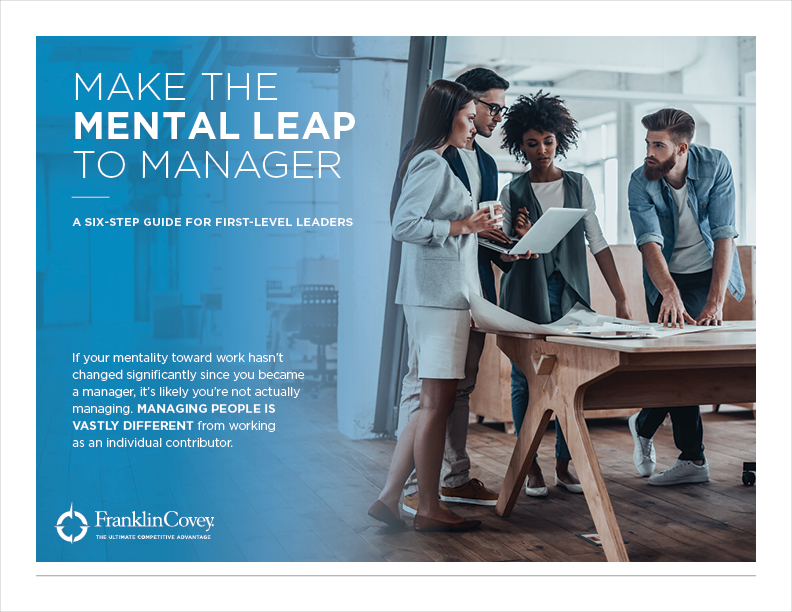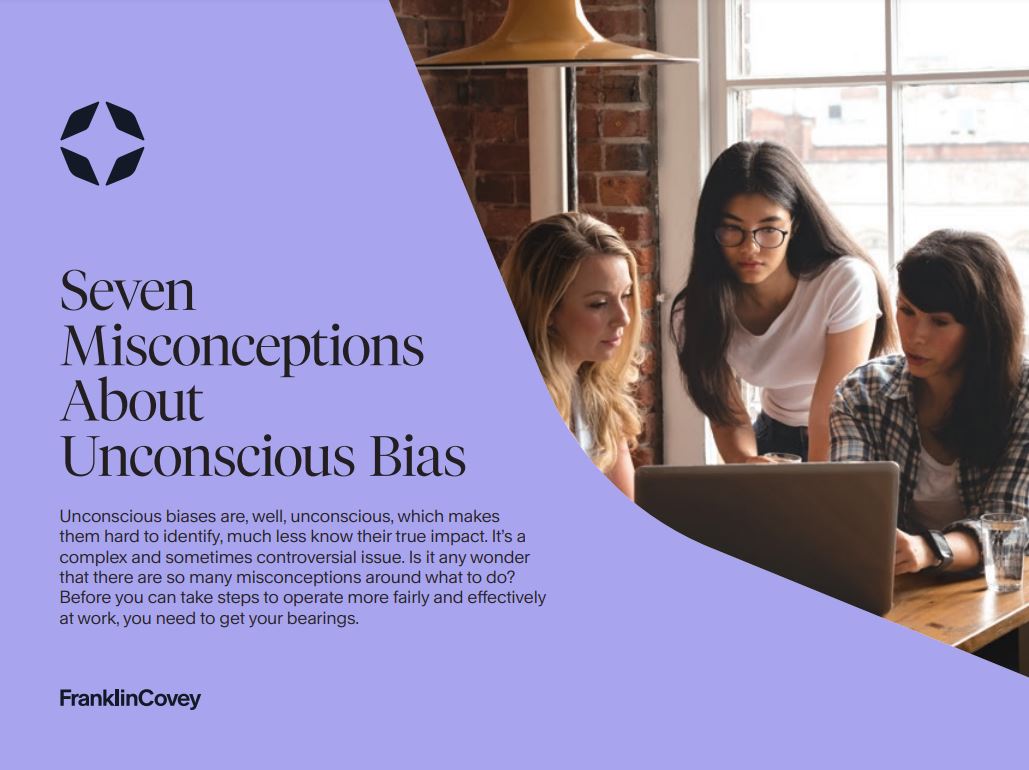
Seven Misconceptions About Unconscious Bias
FREE GUIDE
Unconscious biases are, well, UNCONSCIOUS, which makes them hard to identify, much less know their true impact. Bias is a complex and sometimes controversial issue. Is it any wonder that there are so many misconceptions around what to do? Before you can take steps to operate more fairly and effectively at work, you need to get your bearings.
-

Please fill out the form to receive Seven Misconsceptions About Unconscious Bias via email.
-
-
Unconscious Bias is a natural part of the human condition—it's how the brain works.

Every day, your leaders and your workforce are faced with countless bits of information while making decisions that range from the pragmatic to the strategic. As they confront more and more information—requiring them to act quickly while considering varying perspectives—they are primed to rely on biased thinking.
Why? Because unconscious biases are shortcuts that help our brains compensate for overload. This affects how we make decisions, engage with others, and respond to various situations and circumstances, often limiting potential, inhibiting performance, and leading to poor decision-making.
You may be new to the topic of unconscious bias, or perhaps you already have a training initiative underway inside your organization. Regardless of your knowledge level, these complimentary resources will help as you create a workplace of inclusion and engagement.

